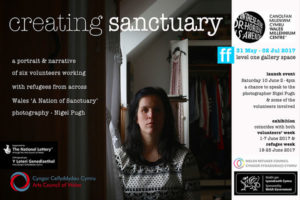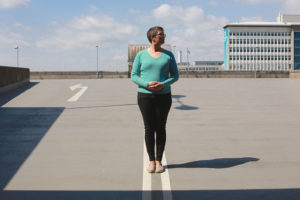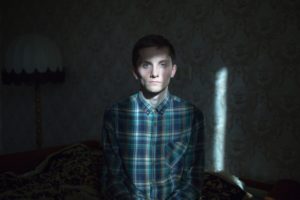
Hi Nigel great to meet you, can you give our readers some background information on yourself please?
I’ve been a practicing artist for twenty four years, concentrating solely on photography for the last seven years. I was born in Mid Wales the woods and rivers that surrounded me were my playground, place of solace and exploration. I absorbed the wildlife and it’s nature, whilst intuitively responding to the ever-shifting light upon the abundant textures and landscapes. During eighteen years of living in Mid Wales I began to note the ecology dwindling, and left wondering, why? Forty years on I estimate that 80% of the river ecology alone, has disappeared.
I went to Art College to study photography, typography and illustration. Four years later I returned to Wales to build and run a successful arts business in Cardiff. I became a father to two lovely children then returned to explore environmental and social themes in an attempt to seek answers to unresolved questions. Photography appeared to me as a modest way to retain a little bit of an ephemeral state; a record of what has been lost, to be lost, or regained. I began to explore my photography practice as my part to play in the promotion of living within environmental constraints and the promotion of a more sustainable, symbiotic relationship with nature, the promotion of a more socially equitable society. I chiefly focus on environmental and social themes; the actions, narratives, interactions of individuals and their relation to their environment and community. I have sought to promote sustainable community resilience, to live within environmental constraints. My nature photography usually documents and promotes native ecology and the worth of its reinstatement. Over many years I have campaigned for, promoted and supported many environmental organisations, that adhere to the above principles.
So what got you interested in the arts and specifically photography?
My fathers relationship with us was often via a lens, he was a very good photographer. We had several family albums in our home, since I can remember, when at the family home they would always be poured over. I loved the documentation, the relationship with moment, place, time and people. I was always praised for my art work, never imagined doing anything else. The hardest thing was settling on a medium. Even though photography was part of my degree, it took having children and being a full time dad to return to this medium. I never liked the blank canvas, although I have created, sold, exhibited, both 3D work and illustration. Photography re engaged my sense of community, took away the blank canvas, fitted perfectly with my social and environmental campaigning and activism. Initially as a medium of evidence, then increasingly as a component part of story telling, socially engaged arts practice, given over to creating positive change.
As part of Refugee Week you are currently showing at Wales Millennium Centre with an exhibition called ‘Creating Sanctuary’ can you tell us more?
‘Creating Sanctuary’ identified human commonalities of purpose, work, security of home, family, friends, community, creativity, camaraderie, healing, sharing loss and grief. The subjects sort shared the commonality of volunteering their time to working with refugees. Refugees, whoever they are and regardless of where they are from, have had their basic human requirements wholly or partly removed. Creating Sanctuary recognises and illustrates the core human requirements that volunteers, or the ‘sanctuary makers’ are assisting to recreate and reinstate. The exhibition was co-ordinated to coincide with Volunteers’ Week and Refugee Week and my hope was that the project will encourage others to accept and assist in the integration of refugees in Wales, and lead to increased voluntary action; to further Wales’ journey in becoming a ’Nation Of Sanctuary’. The exhibition features six volunteers that have worked with refugees in different ways, from right around Wales. Three portraits of each, loosely based on the themes of, voluntary work, home and community. These portraits are then followed by quotes extracted from written responses to seven questions that I asked of the volunteers before taking their portraits.
“I have held a teenage girl while she cried for her mother who she will probably never see again and heard women speak in hushed tones of their past that they struggle to share even with women who suffered the same. These people are just people, alone in a new place, they are professionals, students, mothers, daughters, sons, fathers.”

Catrin – The Birth Partner Project
Barry & Cardiff, South Wales.
https://www.wmc.org.uk/Productions/2017-2018/350509/350514/
Link to an audio interview with Nigel on FFoton.
https://www.ffoton.wales/interviews/2016/5/nigel-pugh
‘Get the Chance’ works to support a diverse range of members of the public to access cultural provision. Are you aware of any barriers to equality and diversity for either Welsh or Wales based artists or audiences?
The Arts Council; I feel is doing its best in ‘out reach’ and ensuring accessibility to all. It will always be extremely difficult to cover all bases, due to cost. All Arts Council funded Arts Centres should do their utmost to reach into disenfranchised, or non-engaged, disadvantaged communities.
If you were able to fund an area of the arts in Wales what would this be and why?
If I were to wave a creative wand, it would create ‘creative hubs’ central to all constituencies. These hubs would have affordable co working spaces, and would house access to facilities to deliver a wide range of the ‘creative arts’. Many a creative is born from a bedroom with an online connection, a computer, and the related software to be able to explore, learn, create and deliver. This access should not be a privilege. Think ’Creative Arts Youth Centres’
What excites you about the arts in Wales? What was the last really great thing that you experienced that you would like to share with our readers?
In all honesty, I barely have time to see enough of the Arts from right across Wales. I am usually tied up with what I am trying to achieve, whilst parenting two children. What does excite me is, if all had the realisation that where ever you are from in Wales if you raise your voice Welsh politics is extremely touchable. If you work together we can create more localised viable economies which include the Arts as a vocation, as being viable, without having to permanently move to a city region. Or if you wished to return to your birth town with your acquired skills it is an option.

Days of Melancholy © Tatiana Vinogradova
As a photographer living in Cardiff I was lucky enough to be included in the ‘diffusion festival’. The exhibition or works that touched me the most within ‘diffusion’ was Tatiana Vinogradova’s ‘Days of Melancholy’ a series focusing on the life of gay people in Russia. Works such as this strongly illustrate the relative freedoms that we do have in Wales to express and be, whoever we wish to be; this should be a right, again, not a privilege.
Lastly, the best things that I have experienced of late on a personal level, were 1) being awarded an Arts Council Grant, 2) getting to work with caring compassionate people from across Wales, 3) completing a project and seeing it on the walls of the Wales Millennium Centre, 4) how positively ‘Creating Sanctuary’ has been received.
It was a journey, that I fully intended to extend further, but whole heartedly not just for my own wellbeing, as my photography is not separate to my activism, or to who I am.
http://www.nigelpugh.co.uk/-/galleries/social-documentary/creating-santuary-final
nigelpugh.co.uk
Nigel gives an overview of the images from ‘Creating Sanctuary’
